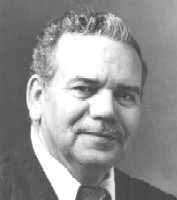Write no lies
A journalism teacher recently raised a question on a listserv. He said he had some colleagues who thought it was acceptable to use composite characters and dress up the setting in a story.
How depressing.
After all the scandals in recent years involving reporters, memoirists and historians who have been caught lying, it is disheartening to hear that some teachers think it is all right to deceive readers. Take note, please. These rules will save your honor, your self-respect and maybe your career:
Make up nothing. Embellish nothing.
The minute you make anything up or embellish setting or anything else, you’re writing fiction.
Do not use composite characters. They are fiction. When they are used without disclosure to the reader, they are lies. With disclosure, they are a cheap gimmick. And they still put your entire story in doubt. If the reader knows you’re willing to make up a character, he can’t help but wonder what else you may have made up.
Don’t change quotes. You can take out the meaningless noise—the ums, ahs and ers—and you can render words in regular English instead of dialect—“gonna” is “going to”—but don’t change the words. I like the guideline John McIntyre spelled out on his blog recently: “We don’t want the words the speaker uses in print to be different from the speaker’s words as broadcast on the television or radio.”
Don’t use other people’s writing without giving them credit. Be generous with credit. Taking other writers’ words without acknowledging the authors is plagiarism. In more blunt terms, a plagiarist is a liar and a thief.
Stay out of people’s heads. You cannot know what anyone thinks. Don’t pretend you can.
Don’t lie by omission. If you distort the story by leaving out information essential to understanding, it is just as wrong as making up details.
Don’t ignore that uneasy feeling in the back of your mind. Pay attention to it.
The rules hold in all forms of nonfiction, including narrative. Some writers think that narrative gives them license to play loose with the facts. It doesn’t. Narrative requires reporting that is every bit as rigorous as straight news writing and requires the same unyielding standards of accuracy.
Labels: composite characters, nonfiction ethics, plagiarism
